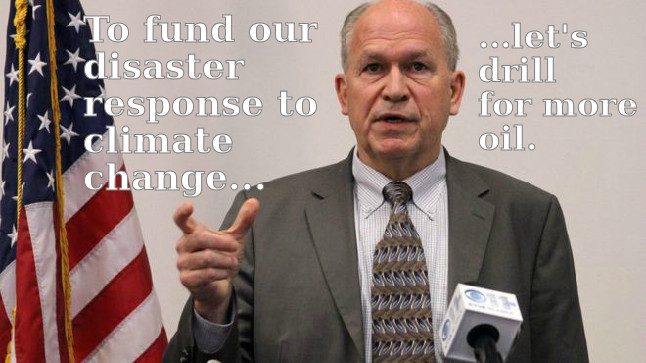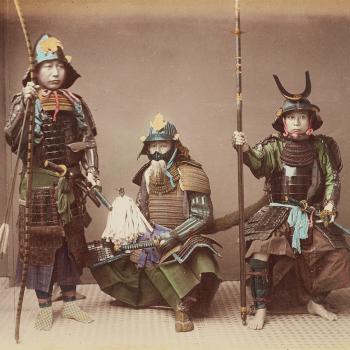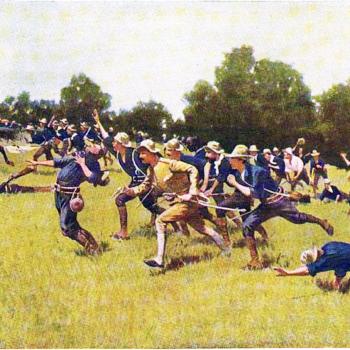If you’ve never seen Hayao Miyazaki’s movie Princess Mononoke, you ought to resolve that soon. The dialog for the English dub was written by Neil Gaiman, and that should really be all you need to know to get you to pull it up on Netflix.
(Spoilers ahead, but c’mon, the English dub came out in 1999.)
It’s a deeply Pagan movie, in the broadest sense of that term. It’s heavily infused with Japanese spirituality; the plot revolves around a conflict between nature and technology, but neither is portrayed simply. Nature is shown as both beautiful and deadly, while the industrial town which is clear-cutting the forest is a haven for outcasts, lepers, and exploited women.
A key plot point is the death and resurrection of the “Forest Spirit”, who is hunted and slain by the industrialists, causing the ruination of the land. And there is one line spoken by a minor character that nails that point, that made me scream at the TV when I first heard it, that summarizes the folly of man in a single sentence:
“I didn’t know the Forest Spirit made the flowers grow.”
It’s the most basic ecological fact that the things we need to survive and prosper on this planet, air and water and food and the recycling of our waste, are the result of natural processes. Yet so many of us go about our business unaware of the nature of that which supports us. We seek to exploit the natural world for our own benefit, not realizing that in so doing we undermine ourselves, because it and we are an indivisible whole.
The same theme is illustrated in a story that’s been in my quote collection for decades:
“A pig ate his fill of acorns under an oak tree and then started to root around the tree. A crow remarked, `You should not do this. If you lay bare the roots, the tree will wither and die.’ `Let it die,’ said the pig. `Who cares so long as there are acorns?'”
(My Google-fu attributes this to a fable by the Russian poet Krylov as retold by Edgar Dale)
It’s a sort of complete disconnect about causality that is at the root of much of our human misery, a viscous circle where we respond to a problem with actions with easily forseeable costs. Often we take actions that not only add new problems, but that actively add to the original problem.
It’s like feeling depressed about how your life is going and deciding to deal with those feelings by getting drunk. As a cliche in the programming world goes, “You now have two problems.”
It’s sad enough when this sort of thinking manifests on an individual level. But when it shows up in discussion a matter that has dire implications for the future of human civilization, that is truly scary. And not in a pleasant Halloween-ish manner.
That’s the case in recent words about climate change from Alaska’s Governor Bill Walker.

Walker recently spoke with BBC News environment correspondent Matt McGrath, and had this brilliant plan for funding his state’s response to the disasters created by climate change: drill for more oil.
Walker: “We are in a significant fiscal challenge. We have villages that are washing away because of the change in the climate…”
McGrath: “So you’re saying that given the climate change impacts in Alaska, you need to be allowed to continue to drill and explore and produce oil to pay for some of those impacts in Alaska?”
Walker: “Absolutely.”
Climate change? Who cares, so long as there is oil?
You can keep up with “The Zen Pagan” by subscribing via RSS or e-mail.
If you do Facebook, you might choose to join a group on “Zen Paganism” I’ve set up there. And don’t forget to “like” Patheos Pagan and/or The Zen Pagan over there, too.













